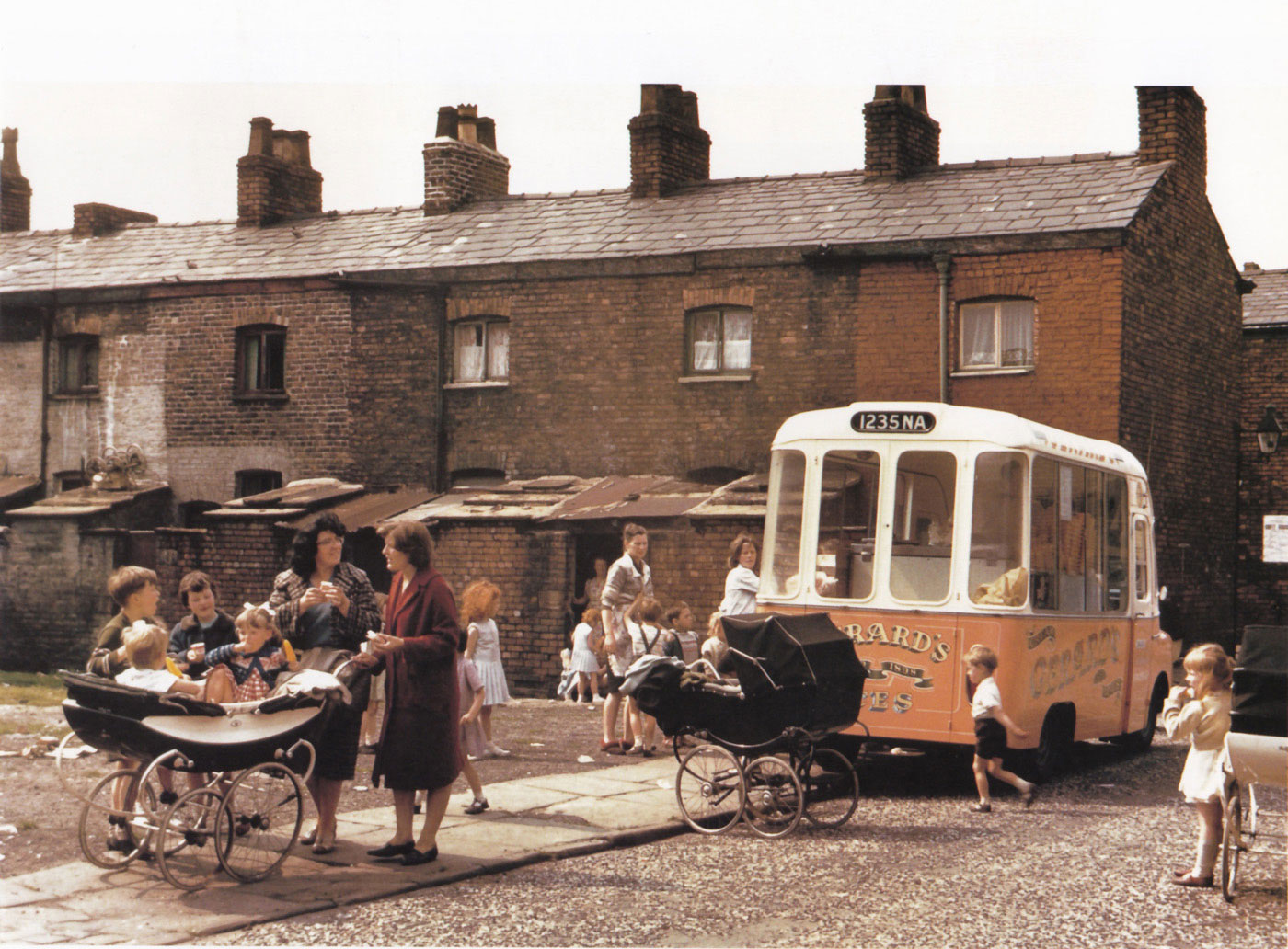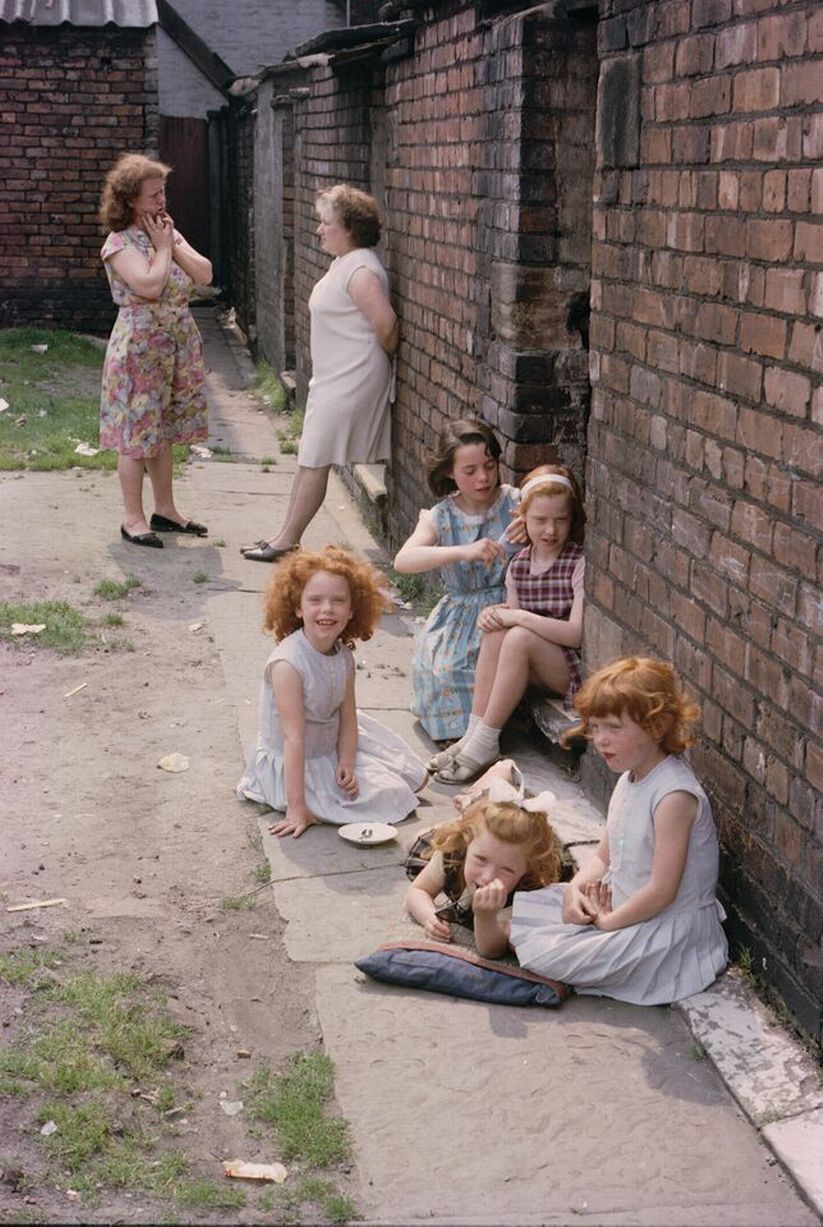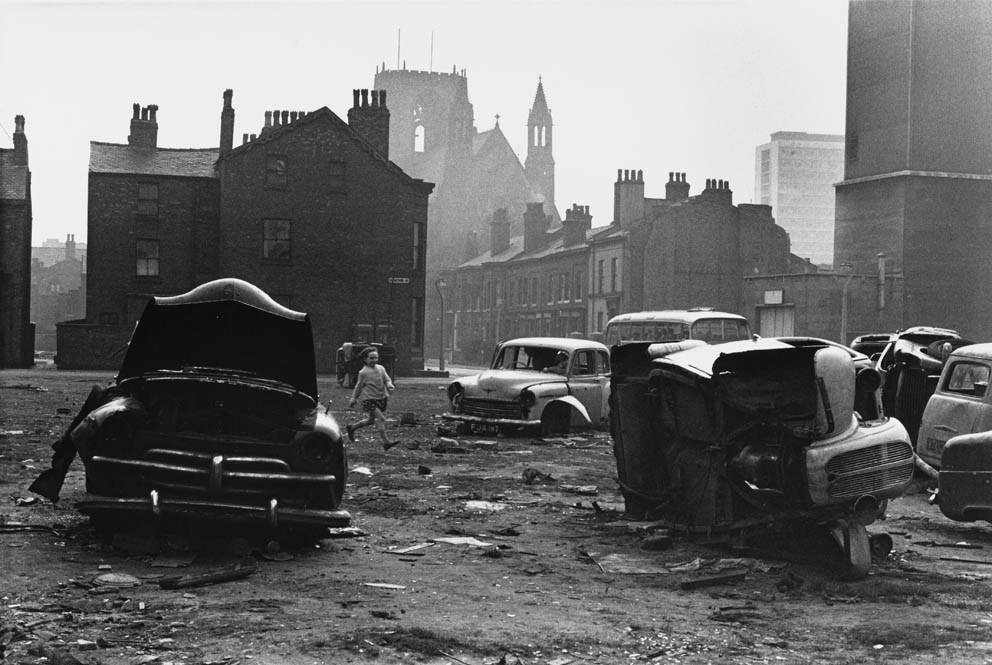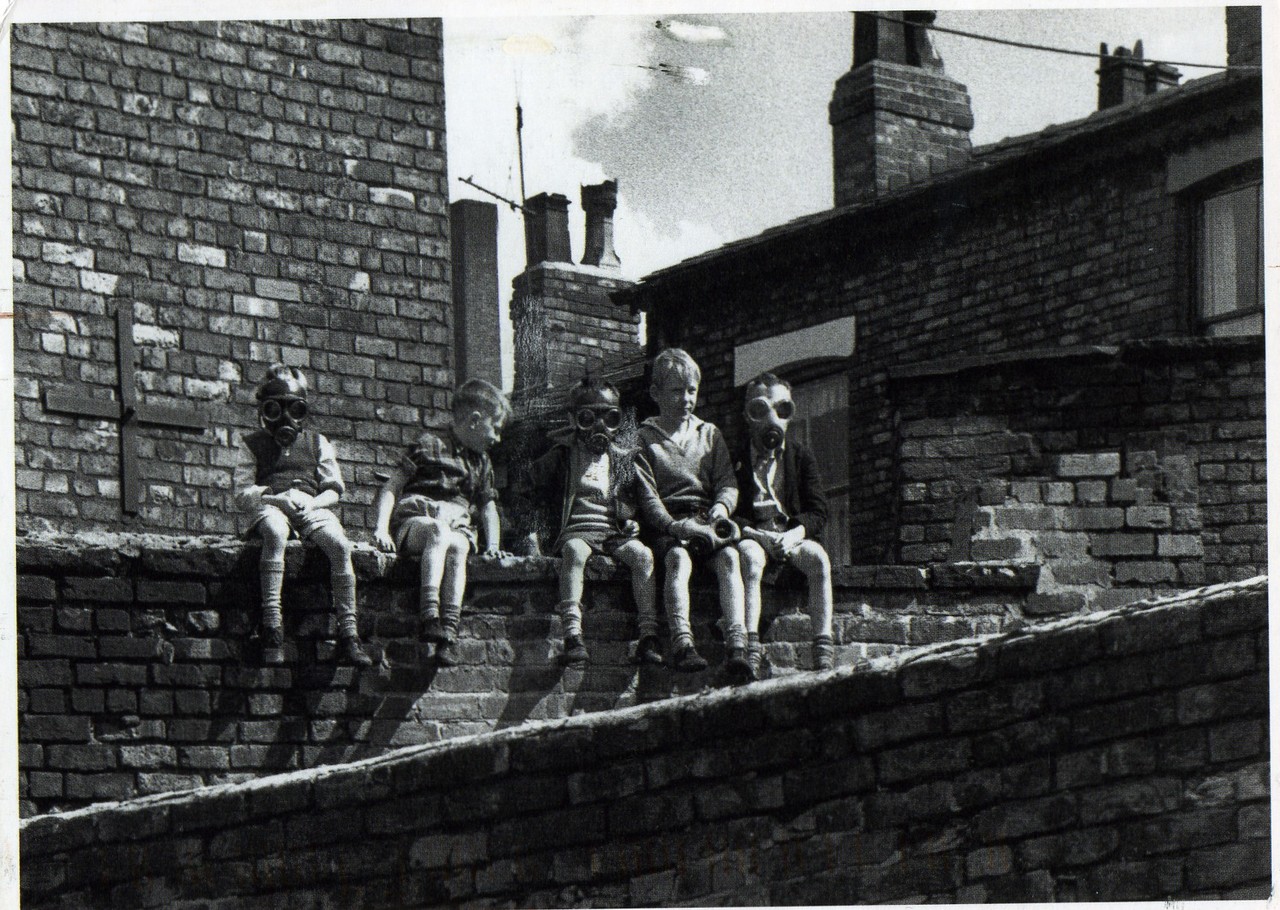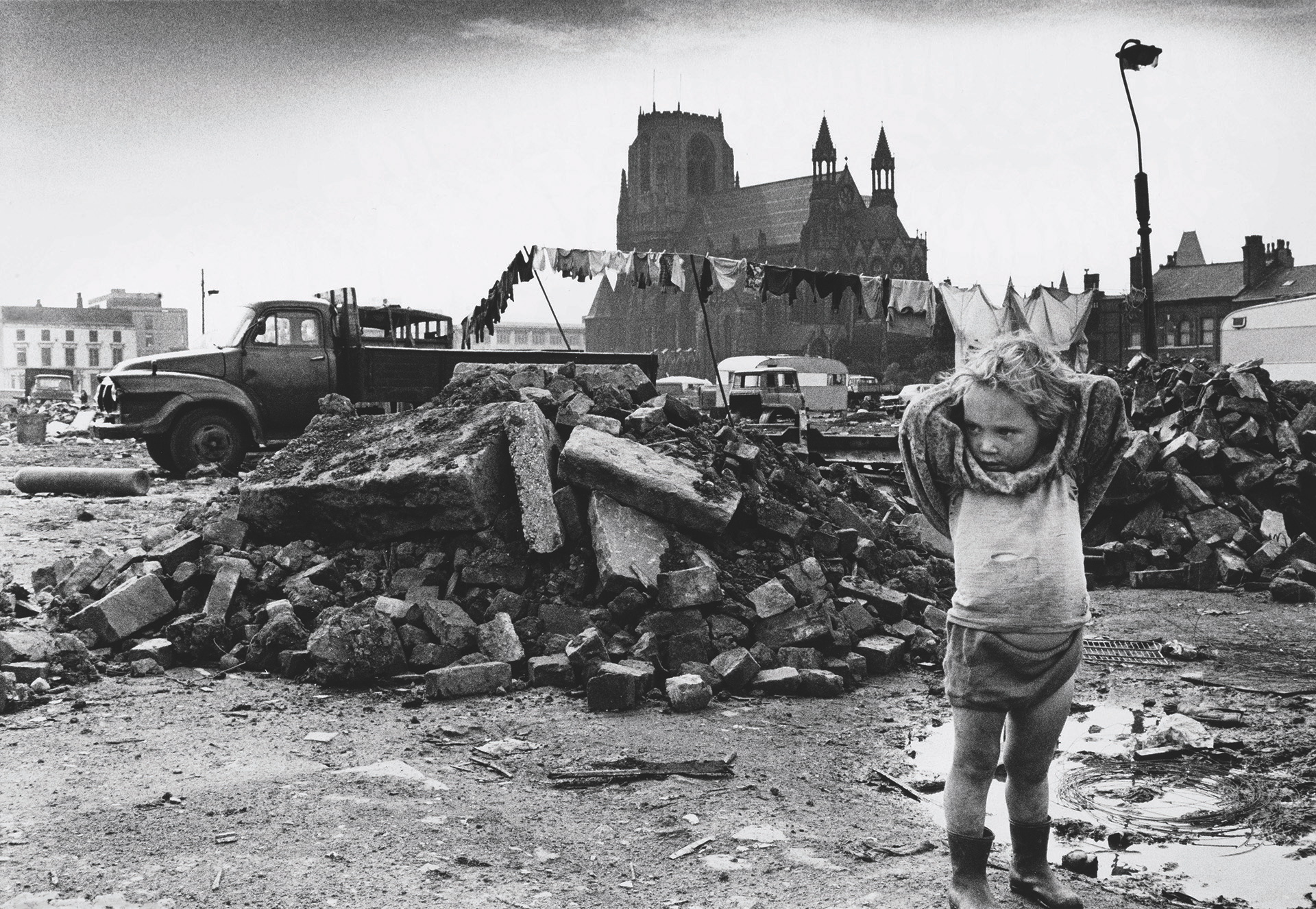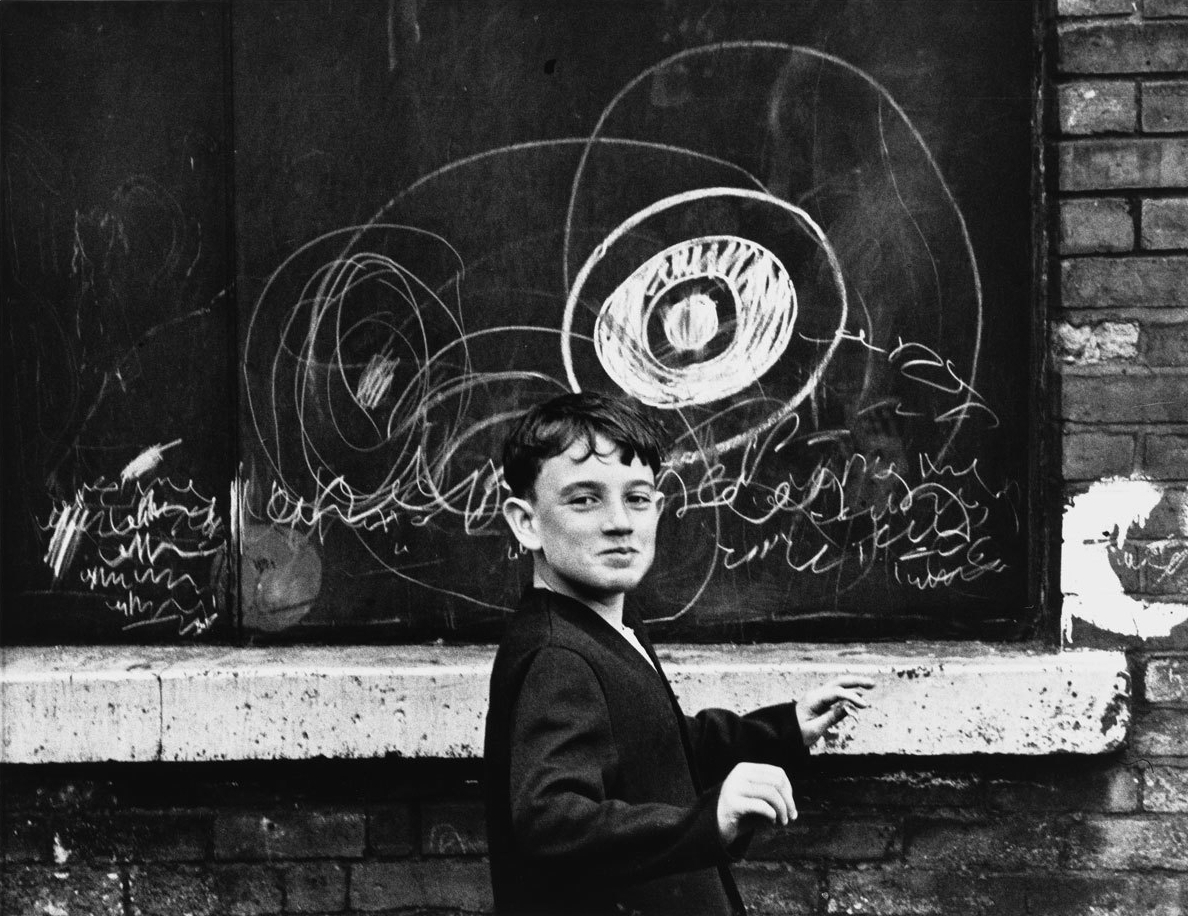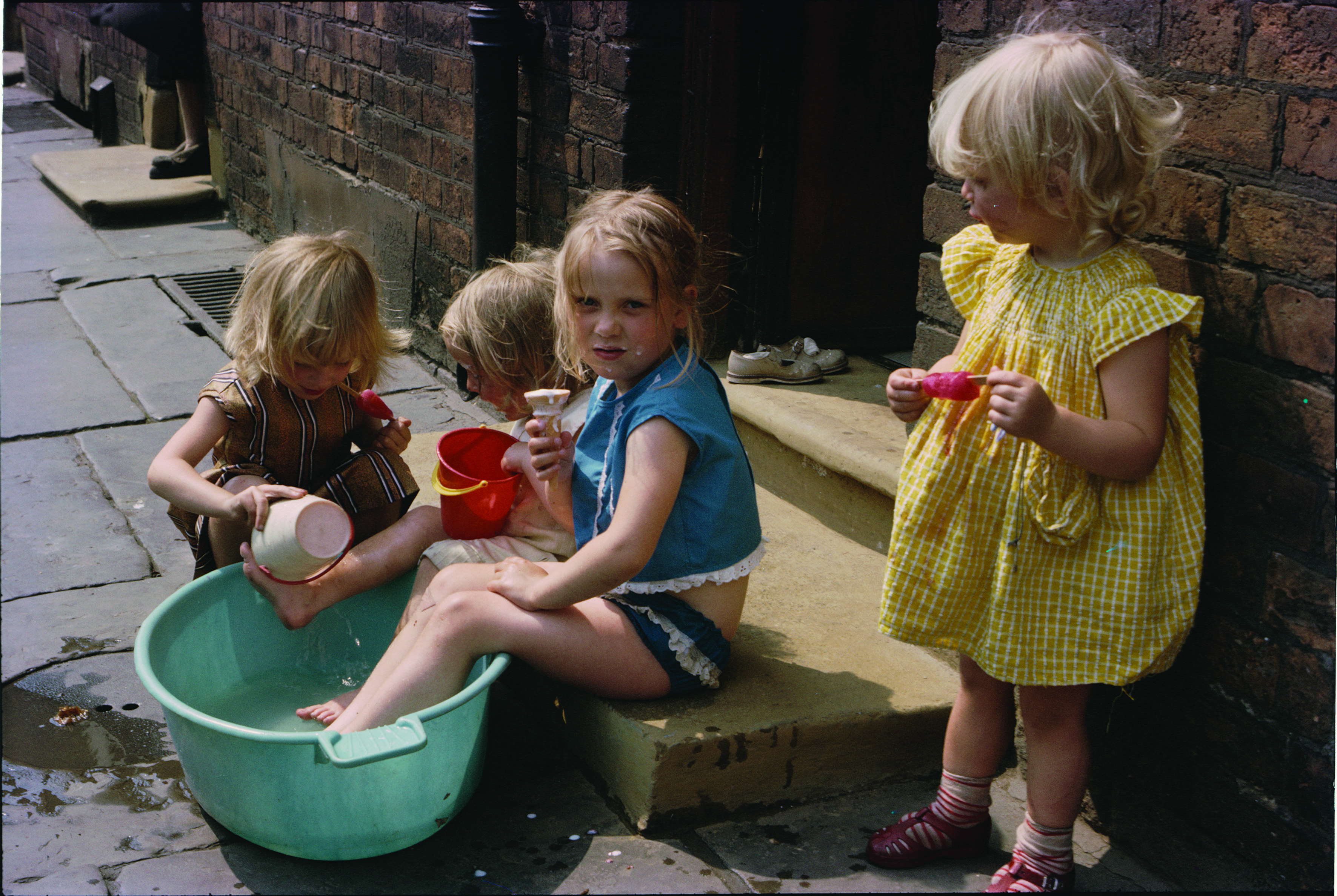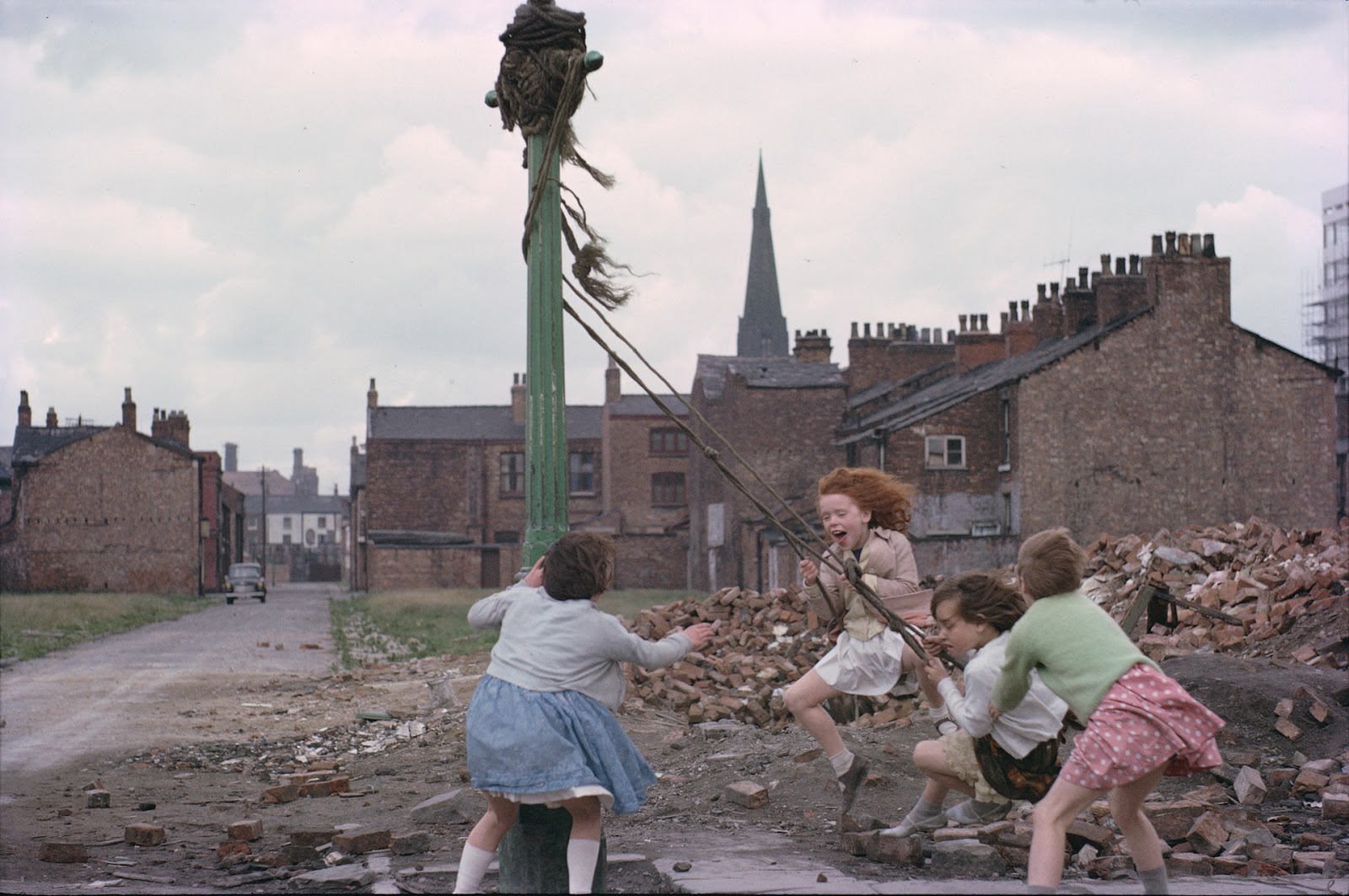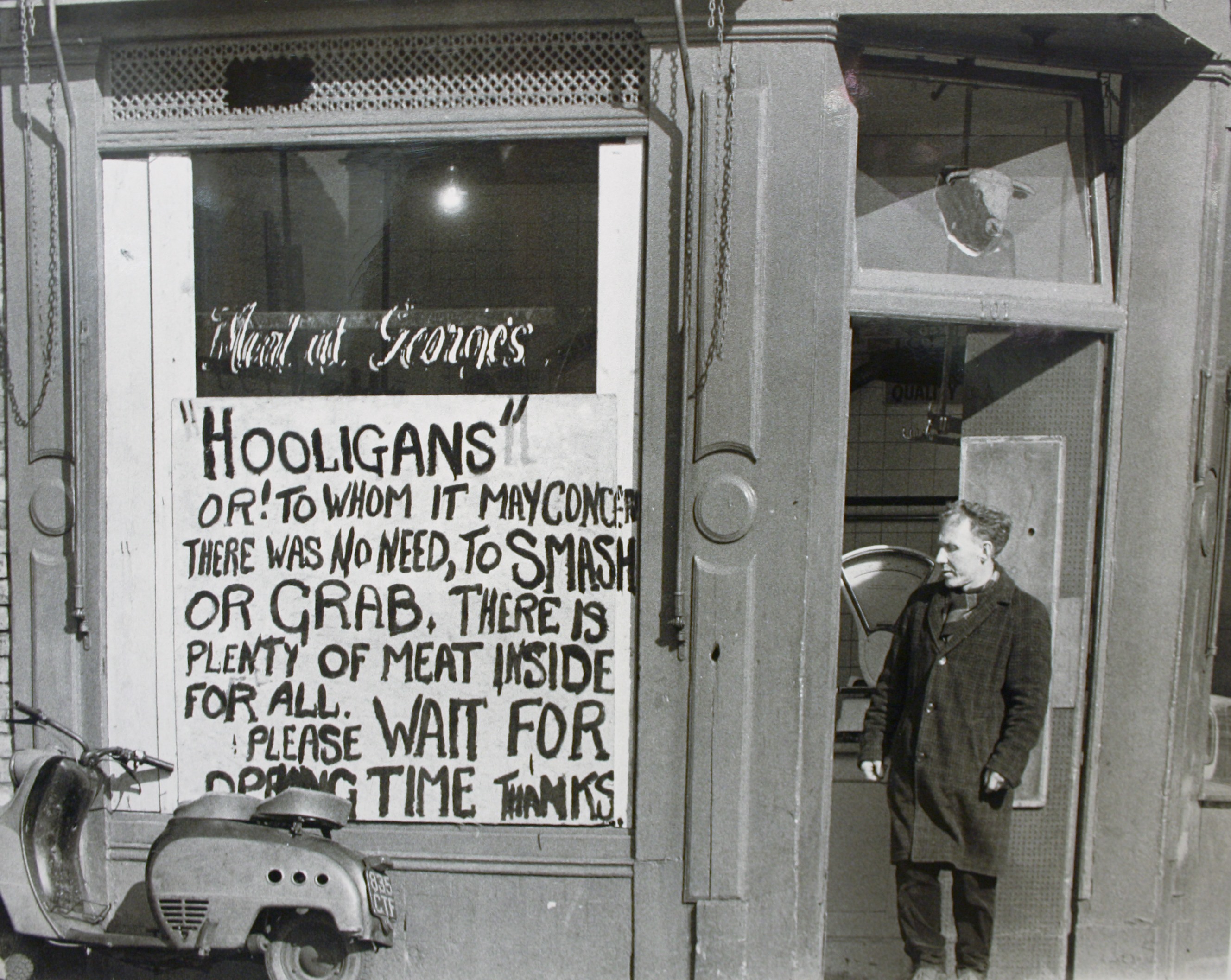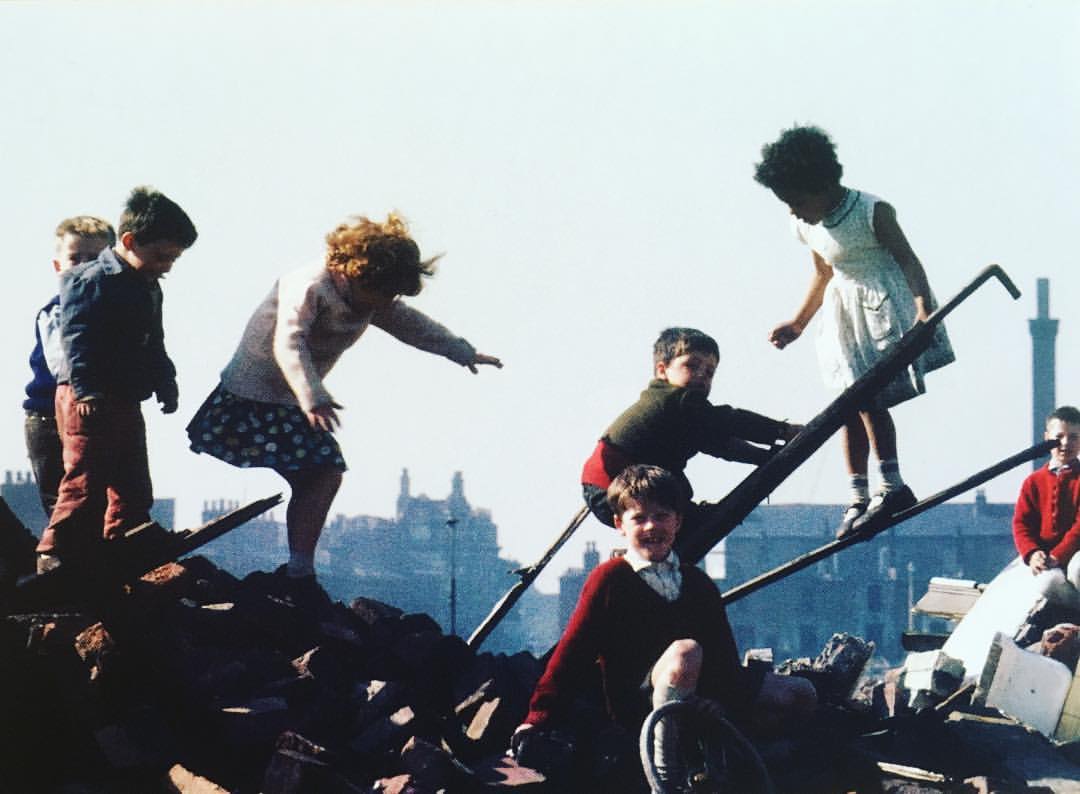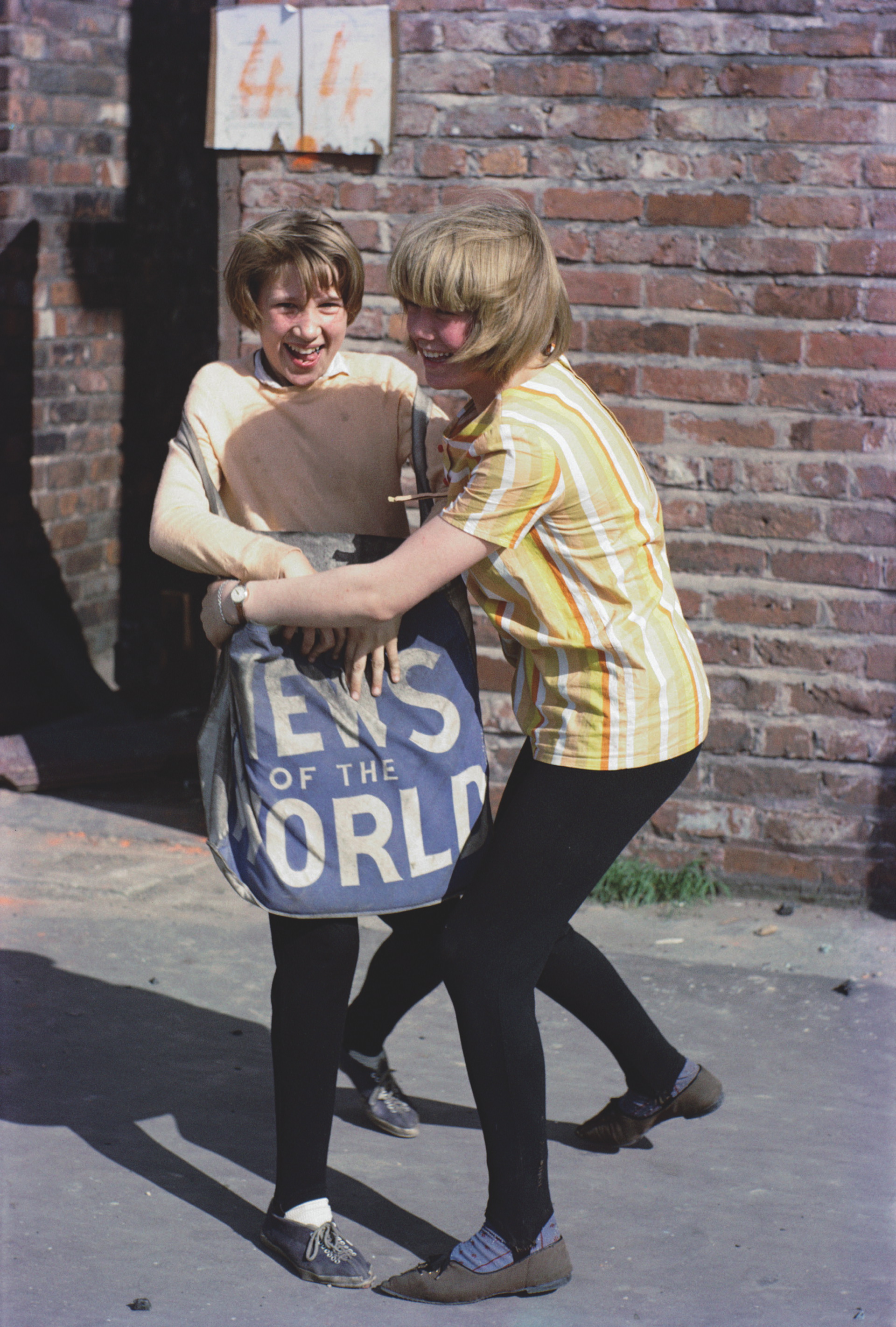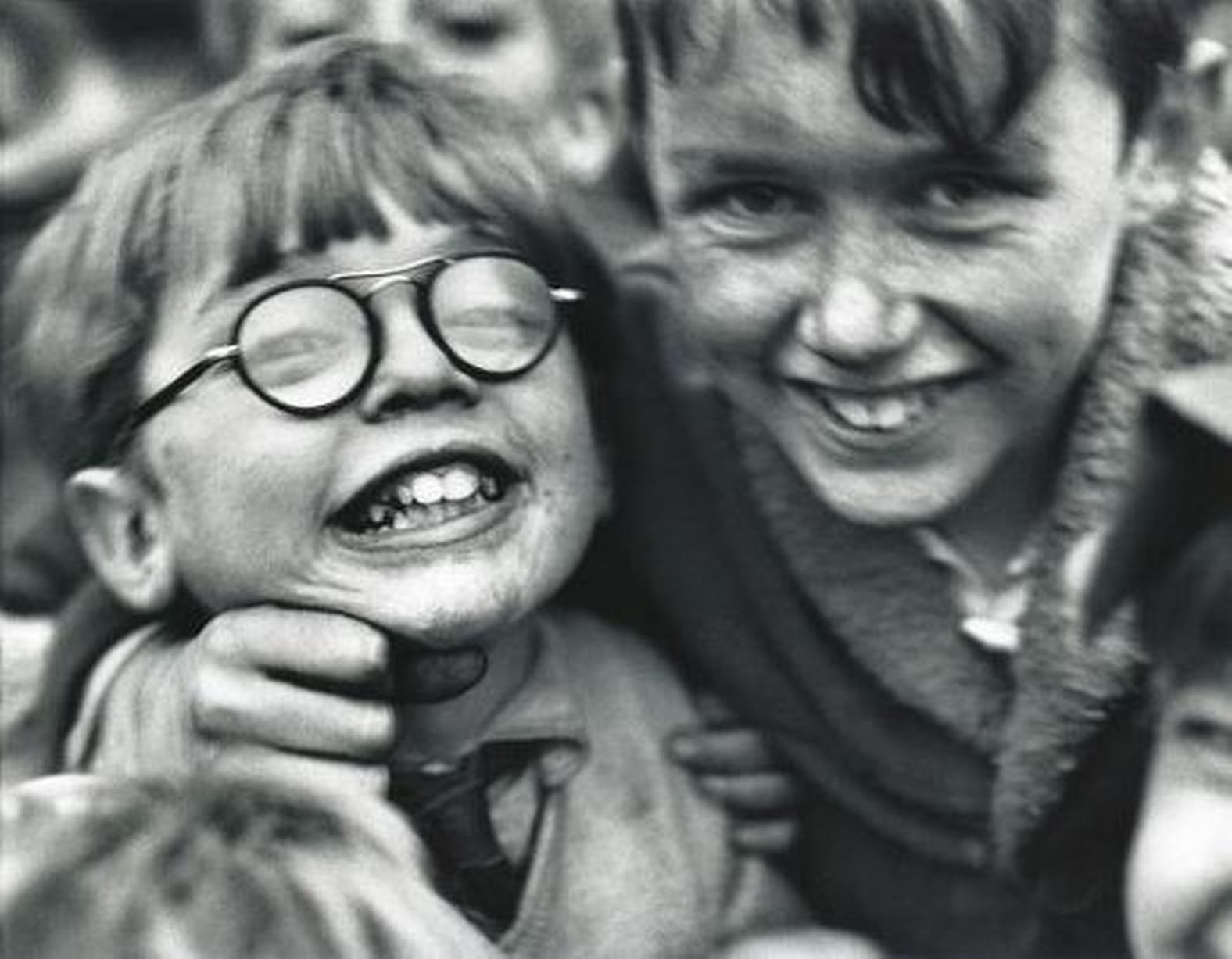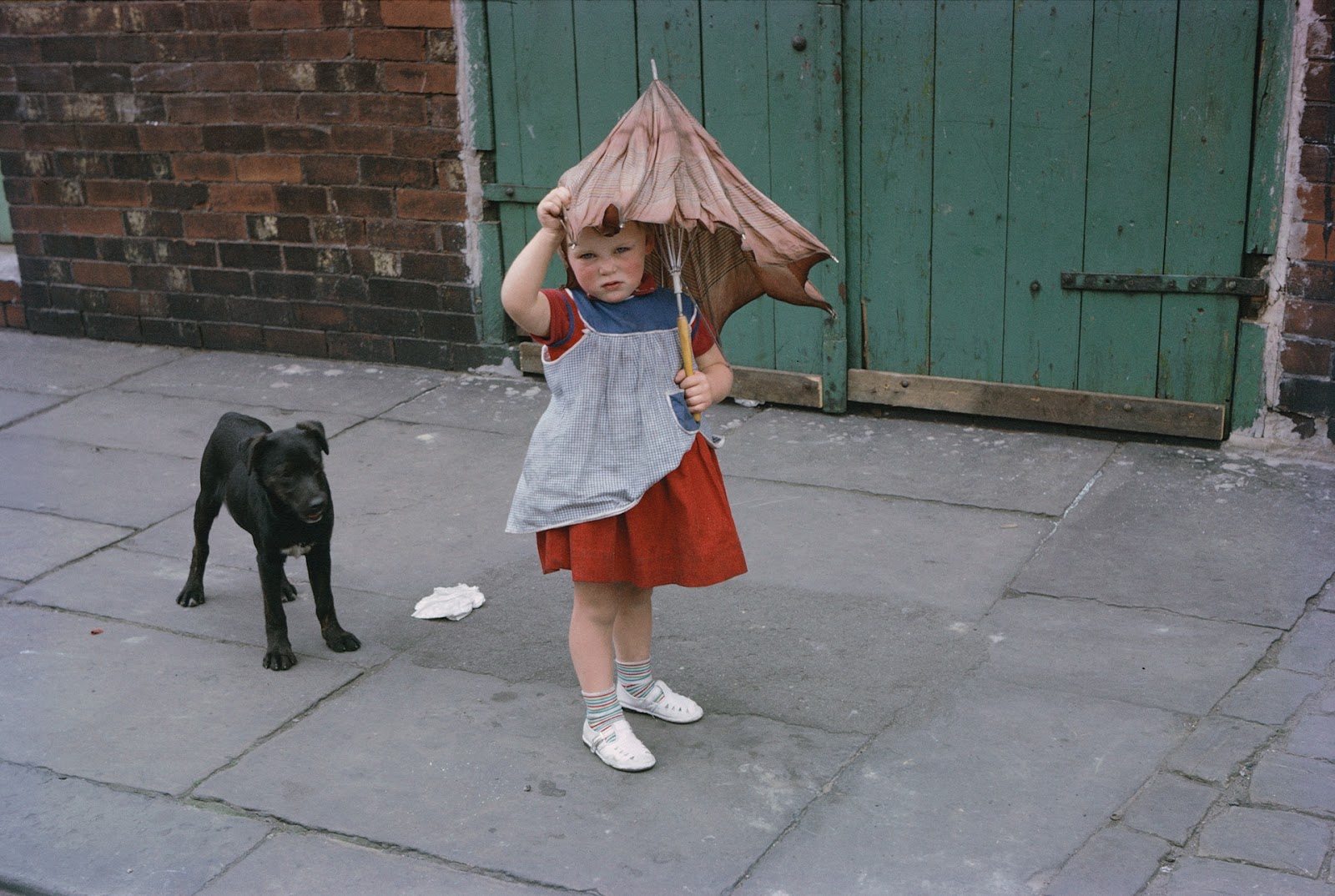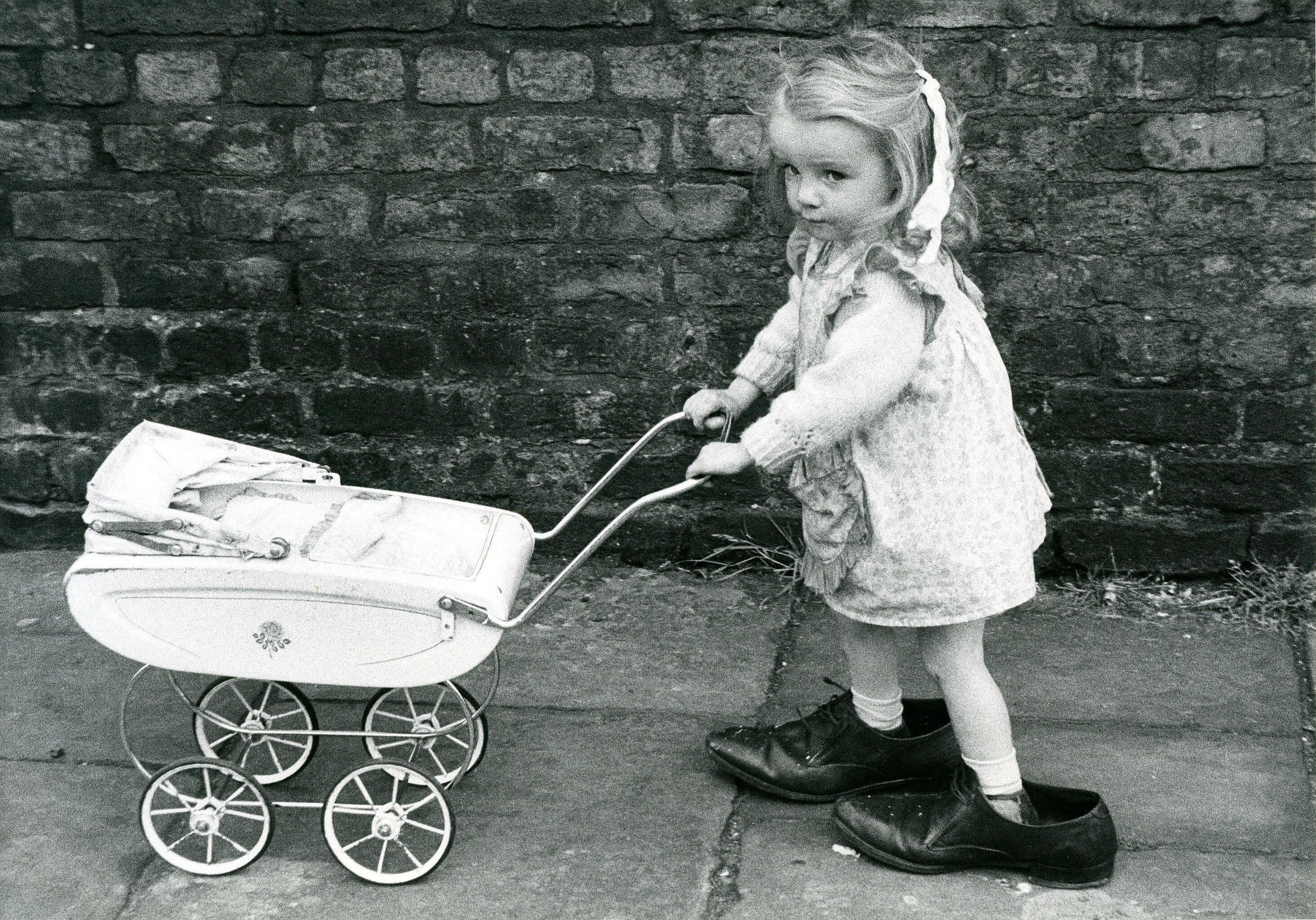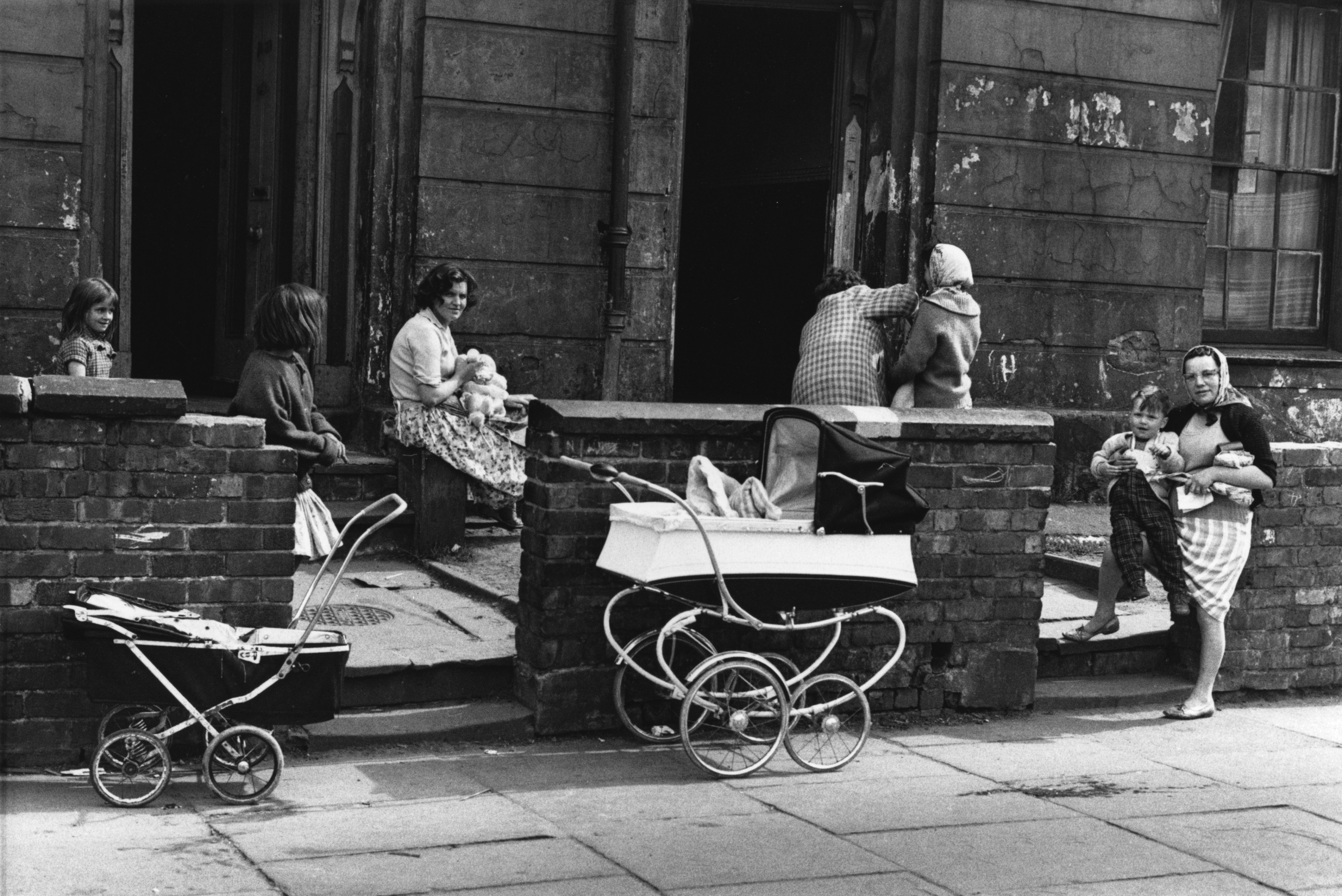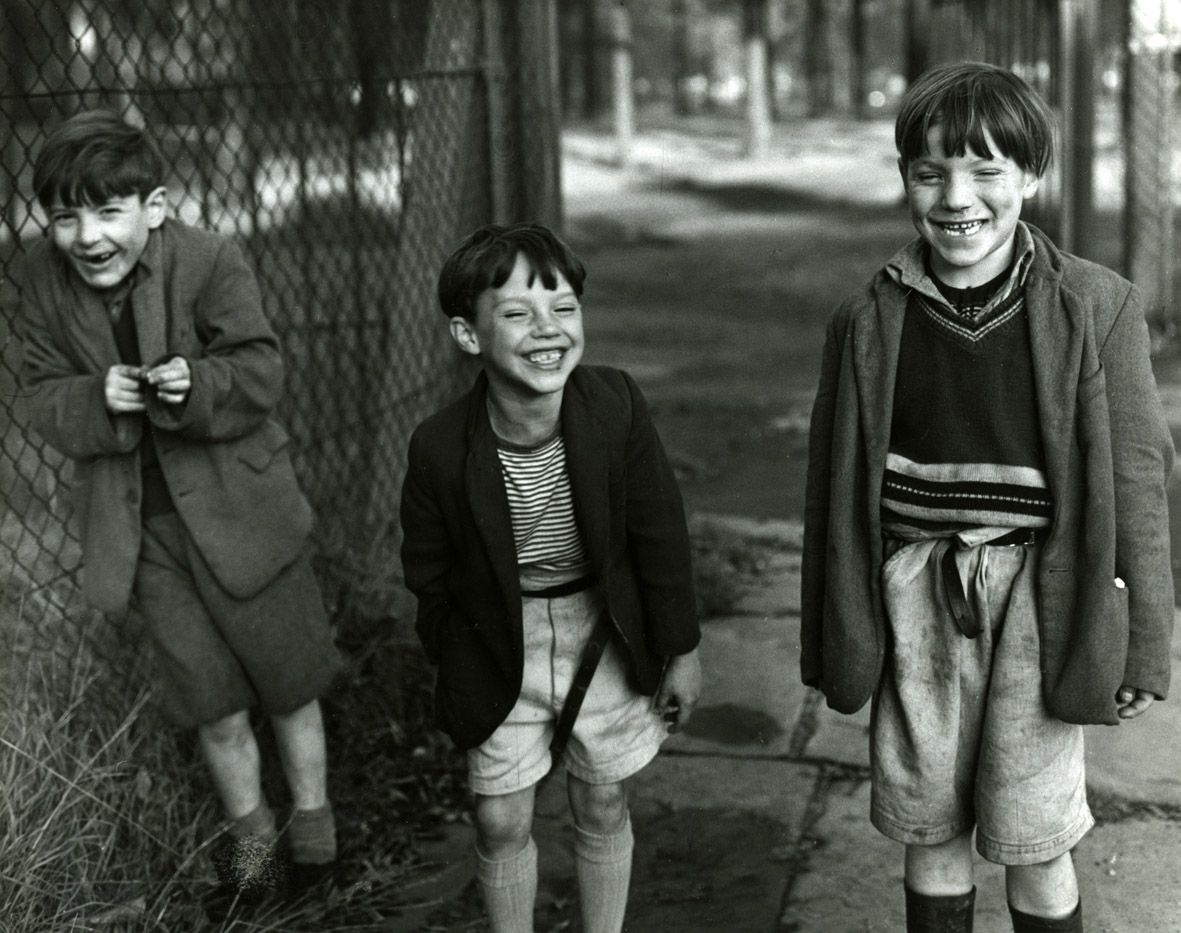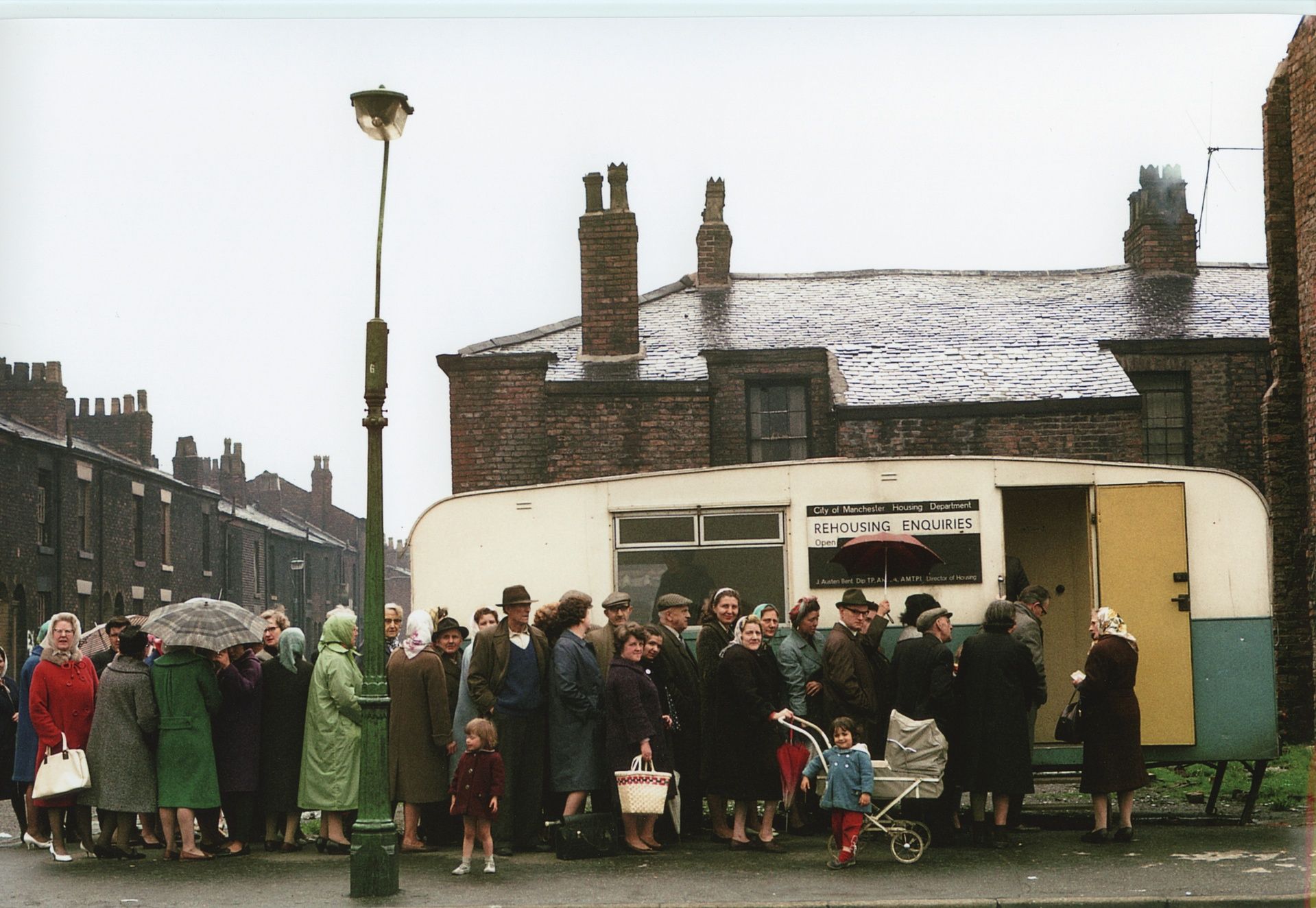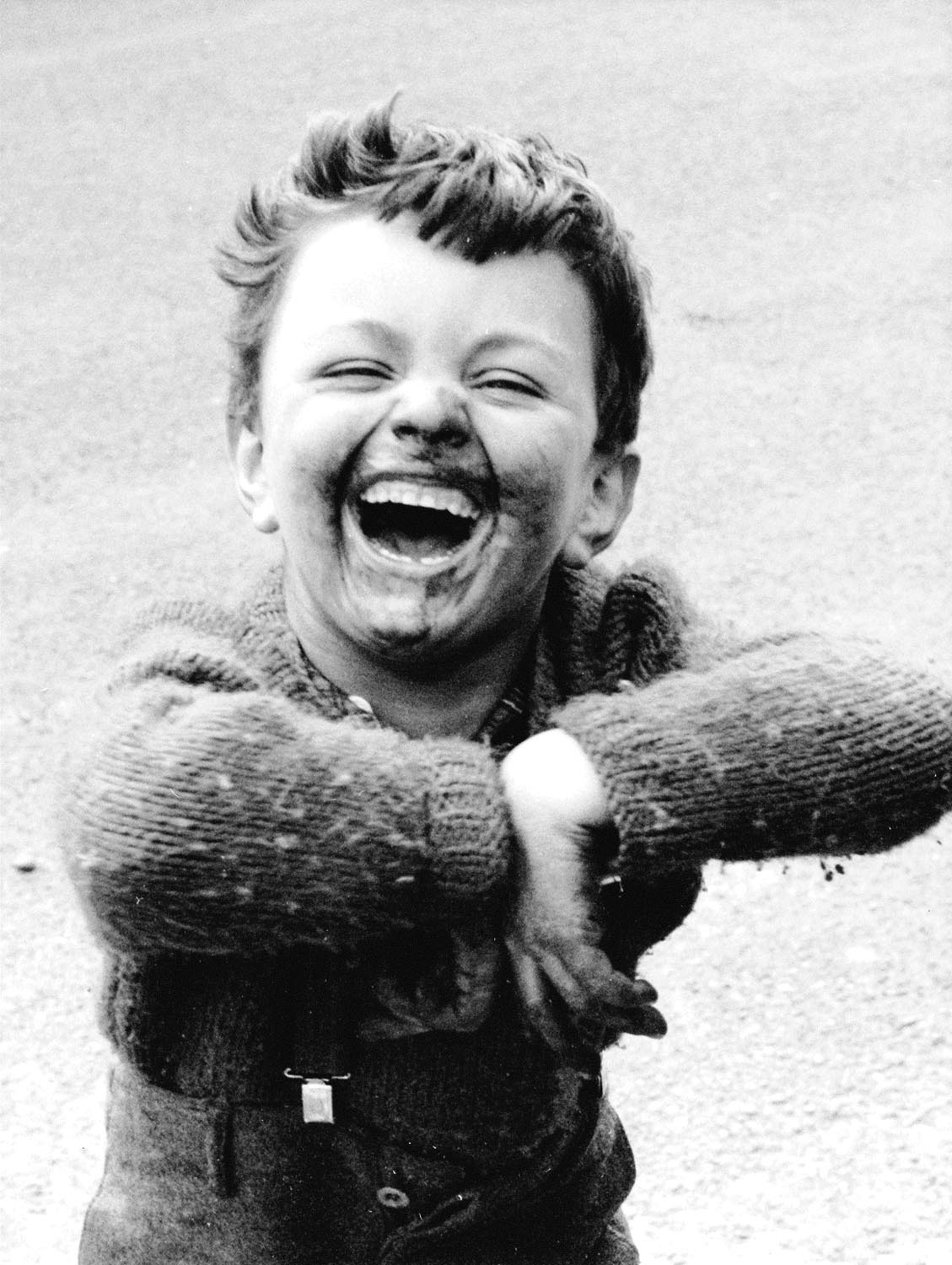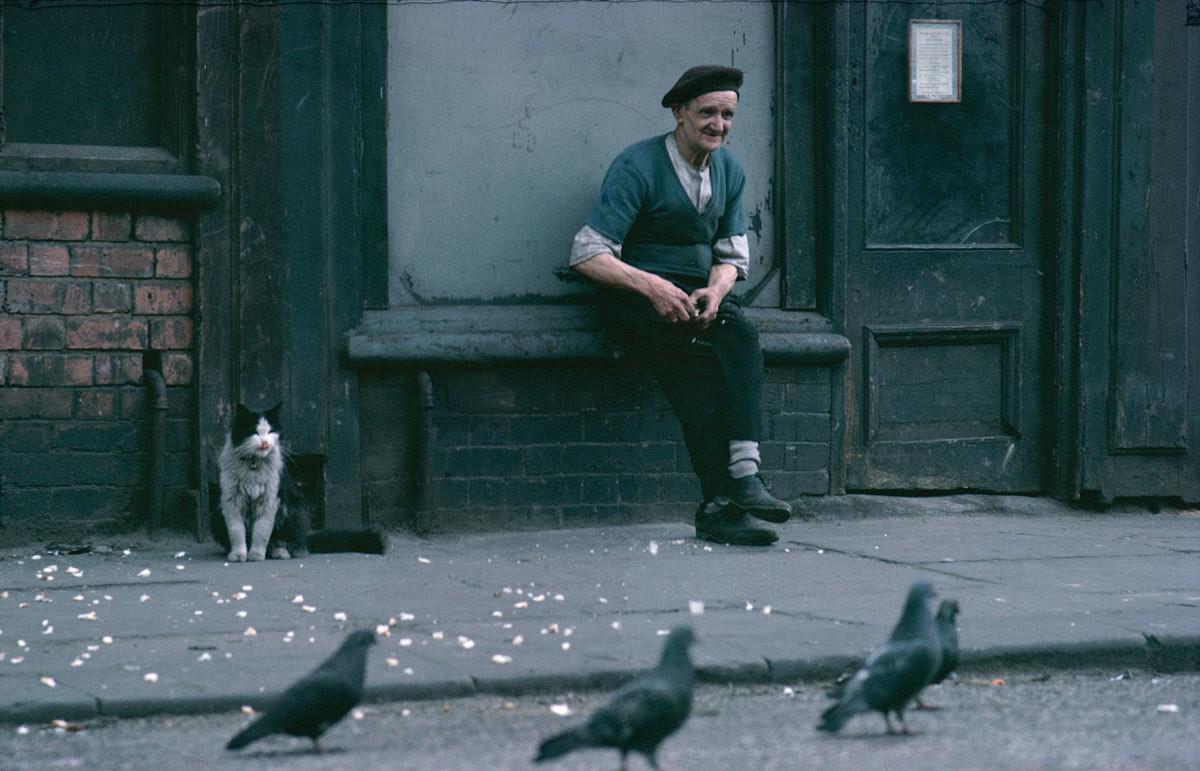In the summer of 2015, London’s Photographers’ Gallery staged the exhibition Shirley Baker: Women, Children and Loitering Men. The show and accompanying book – get it if you can – featured Baker’s look at life on the streets of Manchester, England, from the early 1960s – her colour pictures from the summer of 1965 are sensational. Like Mick Hedges’ photographs of Salford slums in the last 1960s and early 1970s, Baker’s unrehearsed photographs of people in an area changing round them show us lives at at time of incipient chaos.
We see children playing – and, boy, did the children seem to enjoy having their photos taken; Baker’s photos of children are fizzing with life – women talking, men idling and life carrying as normal as homes all around are being razed, the result of post-war slum clearances by the British government. “Between 1955 and 1975, around 1.3 million homes were demolished.”
“There was so much destruction: a street would be half pulled down and the remnants set on fire while people were still living in the area. As soon as any houses were cleared, children would move in and break all the windows, starting the demolition process themselves. There was no health and safety in those days; they could do as they liked. I never posed my pictures. I shot scenes as I found them.”
–Shirley Baker (July 9 1932, died September 21 2014) to The Guardian, 2012
Whole streets were disappearing. And I hoped to capture some trace of the everyday life of the people who lived there. I wanted to photograph the mundane, even trivial aspects of life not being recorded by anyone else. My sympathies lay with the people who were forced to exist miserably, often on end, sometimes years, whilst demolition went on all around them.”
– Shirley Baker (via BBC)
People were turfed out of their homes. Some squatted in old buildings, trying to hang on to the life they knew. They didn’t have much and things were decided for them. A lot of people had dropped through the net and didn’t even know they were entitled to benefits. Some needed help but no one had even heard of a psychiatrist.
I would go out on to the streets capturing this upheaval, photographing people I came across… around every corner there was someone different. It became an obsession.
– Shirley Baker 2012 (via The Guardian)
“I love the immediacy of unposed, spontaneous photographs and the ability of the camera to capture the serious, the funny, the sublime and the ridiculous. Despite the many wonderful pictures of the great and famous, I feel that less formal, quotidian images can often convey more of the life and spirit of the time.”
– Shirley Baker
Would you like to support Flashbak?
Please consider making a donation to our site. We don't want to rely on ads to bring you the best of visual culture. You can also support us by signing up to our Mailing List. And you can also follow us on Facebook, Instagram and Twitter. For great art and culture delivered to your door, visit our shop.
